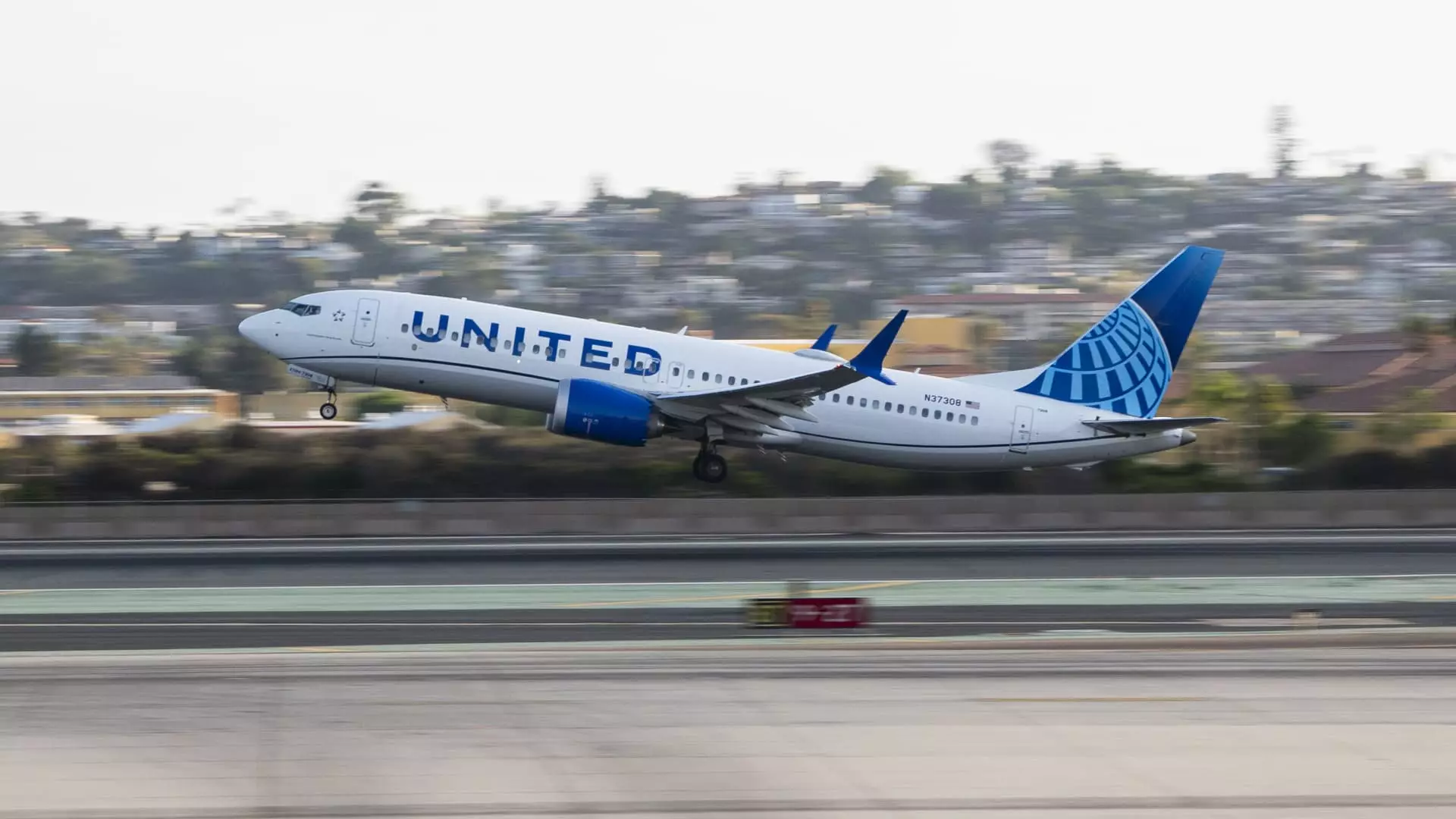United Airlines recently announced robust earnings for the third quarter of 2023, surpassing analysts’ expectations and solidifying its position in a highly competitive industry. The airline reported an adjusted earnings per share (EPS) of $3.33, exceeding the anticipated $3.17, and total revenue of $14.84 billion, slightly above projections of $14.78 billion. These results highlight United’s ability to thrive during the peak summer travel season, despite the long-lasting effects of the COVID-19 pandemic on global travel. It’s essential to recognize that these positive financial outcomes come amidst a backdrop of increasing operational challenges and evolving consumer preferences.
Share Buyback: A Sign of Confidence or Neglect?
A notable aspect of United Airlines’ announcement is its initiation of a $1.5 billion share buyback program, a move that marks the company’s first such action since the onset of the pandemic. While buybacks can be indicative of corporate confidence and an effort to enhance shareholder value, they can also raise eyebrows, especially within the context of an industry that has been heavily subsidized by government aid to remain afloat during the pandemic travel slump. As airlines received over $50 billion in assistance during this period, the decision to prioritize share repurchase over other forms of investment, such as employee compensation or infrastructure improvements, sparks a crucial conversation about resource allocation within the airline sector.
United’s CEO, Scott Kirby, attempted to mitigate concerns by assuring staff that investment in people and operations remains a cornerstone of United’s strategy. However, skepticism persists, particularly from labor unions whose negotiations for a new contract have yet to yield positive results. The timing of such a financial maneuver raises questions about the company’s commitments to its workforce amidst ongoing labor negotiations.
The competitive landscape within the U.S. airline industry is fierce, exemplified by Southwest Airlines’ recent announcement of a $2.5 billion share repurchase program. This environment compels airlines to demonstrate fiscal strength and operational efficiency, particularly as they navigate fluctuating fuel costs and shifts in customer demand. United’s expansion of its capacity by 4.1% and the reported 13% increase in corporate revenue reflect an aggressive strategy to capture market share and cultivate customer loyalty, particularly in business travel segments.
Moreover, the growth in premium revenue, particularly a 5% rise in business class ticket sales, signals a potential shift in consumer behavior where travelers are willing to invest in higher-quality experiences, likely driven by a return to in-person engagements in a post-pandemic world. However, a thorough analysis of United’s performance must consider the fact that net income fell by 15% compared to last year, an indicator that profit margins may still be under pressure despite revenue growth.
Looking ahead, United Airlines projects adjusted earnings of $2.50 to $3.00 per share for the fourth quarter—higher than the previous year’s $2.00 per share, which could reflect buoyant consumer demand as the holiday season approaches. United’s ambitious plans to expand its route offerings to international destinations such as Mongolia, Senegal, and Greenland hint at a strategic pivot toward restoring and growing international travel demand. However, the airline industry remains vulnerable to unforeseen challenges such as production delays at Boeing amid ongoing labor disputes, which threaten to disrupt flight availability.
Moreover, investor confidence will hinge on the airline’s ability to manage these operational hurdles while also addressing internal labor issues, as flight attendants voice dissatisfaction with the current approach to share buybacks without resolving pending contract negotiations. As the company prepares to face analysts and investors, the questions surrounding demand sustainability and operational readiness will be at the forefront.
While United Airlines’ recent financial performance and the announcement of a share buyback program demonstrate a potentially promising trajectory, the company must tread carefully. Striking a balance between rewarding shareholders and fulfilling commitments to employees will prove essential as United navigates the complex landscape of post-pandemic recovery. The airline’s future hinges on not just its ability to generate profits, but also on how it cultivates a sustainable and responsible business model that values both its workforce and its investors. Only time will tell if United can effectively balance these competing interests as it charts its course forward.

